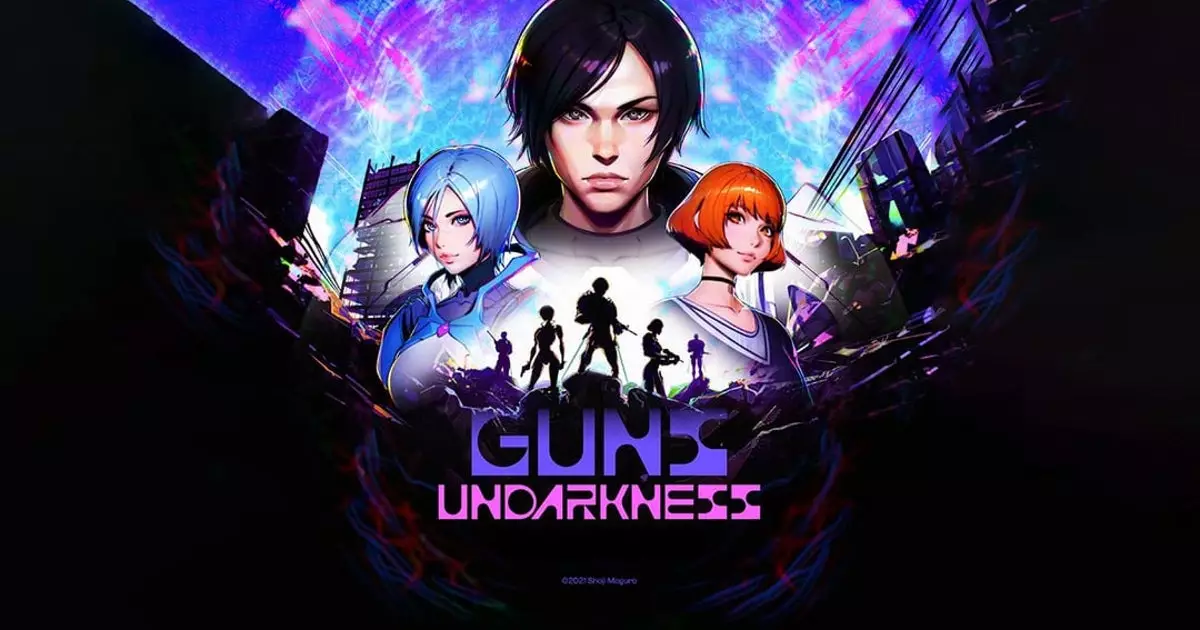In recent years, the realm of video game development has seen a delicate intertwining of innovative storytelling and richly crafted gameplay. Among the notable figures cultivating this evolution is Shoji Meguro, the acclaimed composer known predominantly for his work on the Persona series and Shin Megami Tensei. His latest venture, Guns Undarkness, promises to weave the dark fabric of post-apocalyptic themes into the realm of a turn-based role-playing game, skillfully blending combat dynamics with social commentary.
Set against the backdrop of a war-torn world in the year 2045, Guns Undarkness emerges from the ashes of nuclear fallout. The game paints a disconcerting portrait of society ravaged by inequality—a theme that becomes crucially relevant in our contemporary context. The story unfolds through the experiences of a rookie soldier navigating this fractured landscape where stark divides exist between the affluent elite and the impoverished masses, termed here as the “Haves” and the “Have Nots.” This dichotomy not only serves as fertile ground for conflict but also invites players to explore deeper issues surrounding class struggle and survival in the aftermath of devastation.
The narrative premise draws inspiration from significant socio-political events, echoing real-world movements like the “Great Reset.” This term, originally coined by the World Economic Forum post-COVID-19, signifies a push for economic reformation but has unfortunately been co-opted into the lexicon of conspiracy theories. This layer of contemporary resonance is a double-edged sword; it risks either enriching the narrative or becoming lost in the convoluted web of outside speculation.
A Unique Collaborative Effort
Working alongside illustrator Ilya Kuvshinov, known for his vision on Ghost in the Shell: SAC 2045, and Lotus Juice—a rapper known for embedding unforgettable tracks in the Persona universe—Guns Undarkness is set to be a sensory spectacle. The union of these creative minds potentially heralds an engaging aural and visual experience; however, it raises questions about their collective ability to deliver on gameplay mechanics, especially when Meguro’s forte lies in music composition rather than battle system design.
The announcement trailer teases a visually striking and sonically rich experience, yet it brings with it an underlying uncertainty regarding how well Meguro’s musical expertise can be translated into interactive gameplay. Players may find themselves wondering if these immersive graphics and enticing sounds can be maintained without sacrificing the essence of gameplay.
Combat Mechanics: A Turn-Based Approach
At its core, Guns Undarkness features a turn-based combat system that encourages strategy and cooperation among a squad of four characters. Players are tasked with navigating mission maps while keeping a tactical mindset—similar to the careful planning of Rainbow Six operations. The combat dynamics seem poised to offer a refreshing take on traditional RPG mechanics, including basic attacks and specialized skills that draw on a resource pool.
Cover mechanics seem to play a significant role in combat. Players can utilize cover points to launch attacks while maintaining a defensive posture, adding an exciting tactical element. Additionally, the game incorporates Persona-like reputation systems, fostering character relationships that can enhance combat prowess. These intercharacter dynamics are a promising layer that encourages players to form strategic partnerships, thus enhancing the gameplay experience.
Despite its rich potential, apprehensive anticipation surrounds the game’s thematic content, especially considering its nuanced socio-political context. There’s a delicate balance to be struck between engaging the player with a thought-provoking narrative and veering into territory that could alienate audiences. The reference to Metal Gear Solid as an influence raises further concerns; while Hideo Kojima has masterfully handled intricate narratives in the realm of gaming, few can replicate his nuanced blend of profundity and humor without the risk of overwhelming players.
Ultimately, the success of Guns Undarkness rests not only on its musical and visual aesthetic but also on its ability to provide an engaging narrative and combat experience that respects the complexities it seeks to explore. As anticipation builds for its release later this year, many are left wondering whether this ambitious project will resonate with players or get lost among the myriad themes it grapples with. Only time will tell if this bold foray into a dystopian future will cement Meguro’s legacy as a multifaceted creator or simply serve as a testament to the risks of interdisciplinary collaboration in game design.


Leave a Reply